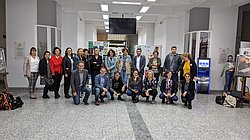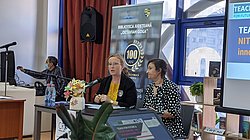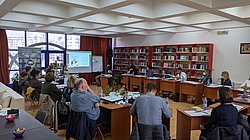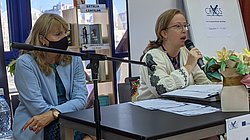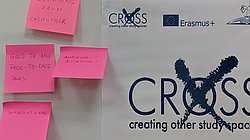Partner Meeting - Cluj (Romania) 1 to 3 September 2021
From 1 to 3 September, representatives of the partner institutions met in Cluj-Napoca, at the headquarters of the "Octavian Goga" Cluj County Library, to discuss and analyse changes in adult learning and the impact of the current epidemiological situation on learning in the "Third Place".
During the two days in Cluj, participants from partner countries discussed the importance of individualising adult education, creating innovative learning spaces, accessible also to people from disadvantaged groups.
The 6 thinking hats method was used to analyse this topic, which made an inventory of the information already known on the subject, highlighted the advantages and positive aspects of such spaces and identified possible challenges that could arise in working with disadvantaged groups. The various problems and emotions that might arise from participating in activities in these innovative spaces were discussed and possible alternative solutions identified.
Some conclusions form the “Yellow hat” (= optimistic view):
A 3rd place is:
- free
- noncommercial place to spend time
- contributes to the reduction of inequalities
- contributes to social cohesion
- give the individual the opportunity to learn at a personal tempo, to feel free to choose when, how, what to learn
- accessible for disadvantaged populations
From creating a 3rd place benefits:
- the institution itself and its staff (good for reputation & position, in fundraising activities, argument for the authorities and politicians)
- the people who are using the services of this third place
- the whole community / the entire society
In CROSS we shall go for “4 L spaces” (Local Living Lab Libraries)!
Another topic discussed during these days was the challenges of the pandemic period and how each partner managed to overcome the difficulties encountered. Two special guests attended the meeting: Ms Ioana Crihan?, Executive Director of ANBPR, who presented ANBPR's latest Erasmus+ projects in the field of adult education, and Mr Victor Miron, a partner and constant collaborator of the library, who presented his own initiatives to promote reading and the creation of new learning places.


